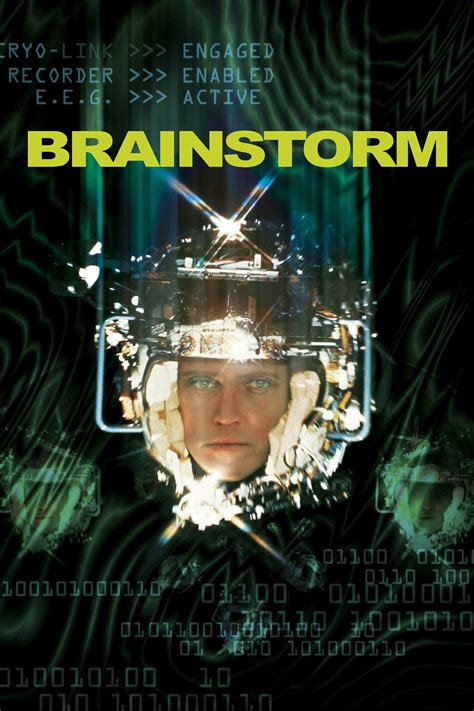Brainstorm
directed by: Douglas Trumbull, year: 1983
actors: Christopher Walken, Natalie Wood, Louise Fletcher, Cliff Robertson
actors: Christopher Walken, Natalie Wood, Louise Fletcher, Cliff Robertson

Description:
Brainstorm is a 1983 science fiction film that explores the implications of a revolutionary technology that can record and play back human experiences. The story follows brilliant scientists Lillian Reynolds and Michael Brace, who develop a device that allows users to experience the recorded sensations and emotions of others. As they delve deeper into the possibilities of this invention, they face ethical dilemmas and dangerous consequences when the technology falls into the wrong hands.Keywords:
Technology, Consciousness, Virtual Reality, Ethics, InnovationWhat does brainstorm mean?
In the context of the movie "Brainstorm," the term "brainstorm" refers to a process of generating ideas or solving problems through spontaneous and creative thinking. The film explores the concept of a groundbreaking technology that allows people to experience and record thoughts and sensations directly from the brain, facilitating a deeper understanding of consciousness and human experience. The term also reflects the themes of innovation and the ethical implications of such powerful technology.
Did Natalie Wood finish brainstorm?
Natalie Wood did not complete the film "Brainstorm." She passed away tragically in November 1981 during its production. The film was released in 1983, and her character was completed using a combination of existing footage and some creative editing techniques. Director Douglas Trumbull and the production team worked to finish the film while honoring her legacy.
What is the synonym of brainstorm?
A synonym for "brainstorm" is "ideate." Both terms refer to the process of generating a variety of ideas or solutions, often in a collaborative setting. Other related synonyms include "think tank," "conceptualize," and "invent." In the context of the movie "Brainstorm," which explores the concept of sharing and experiencing thoughts and emotions through technology, the idea of brainstorming reflects the innovative and creative aspects of the characters' work.
What is the term brainstorm?
In the movie "Brainstorm," the term "brainstorm" refers to a groundbreaking technology that allows users to experience and record thoughts, sensations, and emotions directly from the brain. This technology enables people to relive experiences and share them with others, raising ethical and philosophical questions about privacy, consciousness, and the nature of reality. The film explores the implications of such powerful technology on human relationships and the potential consequences of manipulating the mind.
Explore More Categories:
Harassment Character Driven Drama Family Dynamics Truth Meltdown Independent Film Underworld Environmental Collapse Found Family Climate Change Hostage Autoracing Racing Labor Rights Intuition Cultural Insights Pranks Contemporary Realism Mountaineering Dehumanization Occupation Investigative Documentary Class Disparity Father Daughter Pop Culture